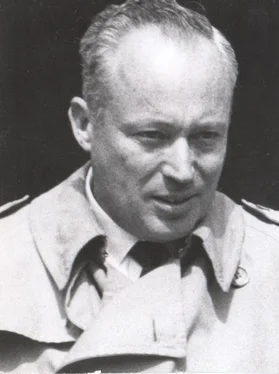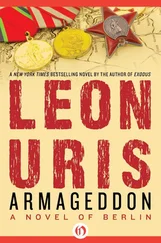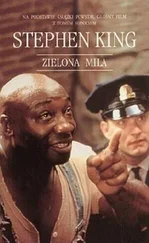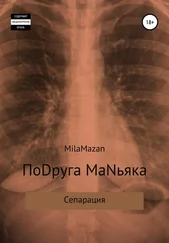Throughout February 1943, Rudolph Schreiker bumbled through a fruitless campaign to lure the forty thousand survivors out of the ghetto. Joint Jewish Forces had a standing order that anyone volunteering for deportation or attempting to leave under German auspices would be shot.
Joint Jewish Forces allowed small numbers of Germans to enter the ghetto unmolested. Schreiker’s emissaries went to the factories, attempting to win “labor transferrals” by guaranteeing good working conditions in Poniatow or Trawniki. To back up his intentions of good faith, Schreiker shipped in some food and medicine.
A few prominent Jews in prison in Warsaw were sent into the ghetto to form a new Jewish Civil Authority to open schools and hospitals and resume cultural activities.
But no one budged from his hiding place.
In a week Schreiker realized the new Civil Authority was powerless and in an angry rage over his own failure had them executed in the bloody Civil Authority building.
The newspapers and the radio decried the lack of Jewish co-operation in the resettlement for “honest labor.” The Polish people were fed a line that it was Jewish behavior that was to blame for the Polish misfortunes, for if Jews reported for “honest labor,” then Poles would not be needed. It was a “logic” the Poles accepted.
Simon Eden had the one thing he wanted most, time. It was time he had played for when he held fire when the Militia was taken to the Umschlagplatz. Time gave him the chance to augment his meager forces.
The Revisionists made firm contact with a small right-wing underground group, the ND Brigade, on the other side. Through the ND Brigade, the Revisionist groups—Chayal, Jabotinski, and Trumpeldor—were the best-armed company in the ghetto.
The Communist underground People’s Guard was ill armed and could not spare a bullet for the ghetto, but they gave Joint Forces a strong liaison on the Aryan side with radio contact and hiding places in Warsaw.
By March of 1943 the tiny Jewish Forces were deeply hidden in the catacombs of the ghetto, were quick in their response to discipline, had as good observation and communications and contacts as circumstances allowed. The small teams of Fighters had shown extraordinary restraint in holding fire and maneuvering without being seen and had developed leadership to such a degree that even the pessimistic Simon Eden was beginning to feel they could hold the Germans at bay for a week.
Mid-March. Two months had passed and the Jews still held the ghetto. Alfred Funk roared into Warsaw, locked Rudolph Schreiker in his office, and berated him with obscenities for an hour. Schreiker was stripped of the duty. He was allowed to retain his post, for the Nazis could not admit failure in Jewish matters, but ghetto liquidation was turned over to Horst von Epp and Dr. Franz Koenig.
On March 17 a single German staff car drove through the Leszno-Tlomatskie Gate with a pair of large white flags attached to either fender. It moved at a crawl up Zamenhof Street and stopped before the Civil Authority building. A single soldier without rank stepped from behind the wheel and held up another white flag.
The car was under observation by Jewish Fighters the instant it entered the ghetto. The soldier shifted nervously from one foot to the other, unnerved by the quiet.
Heads began popping out from behind doorways, crevices, windows, courtyards, in a circle around him. He waved the white flag vigorously. Then his eyes narrowed as a woman holding a German rifle and wearing German boots approached him, leading a dozen men.
Ana Grinspan had seen Germans in her rifle sights before, but this was different. The mutual curiosity of enemy looking at enemy. The practical application of Andrei’s continued lectures that these were not supermen. Hit them with a bullet and they will go down. The soldier was clearly puzzled at the face of his enemy. The “sub-human” was a tall handsome woman leading men whose prowess he had no desire to contest.
“I have a message for your commander from Dr. Franz Koenig representing the German authorities,” he recited.
“Runner.” Ana commanded, “go to Atlas in Jerusalem and tell him that Pharaoh has sent a messenger under truce. We will hold him at Herod’s Palace.”
A runner dashed off down Zamenhof Street.
“Blindfold him,” Ana ordered.
Moments later Simon Eden spoke to the back of the soldier. “I am the commander,” he said.
“Dr. Koenig wishes to have a meeting under truce with you and your command. He guarantees complete safety—”
Simon interrupted. “Tell him that if he wishes a conference he will walk alone through the Leszno-Tlomatskie Gate holding a white flag and he will stop before the Civil Authority building. He will come between twelve and twelve-ten o’clock.”
The single obese figure of Franz Koenig waddled into the unearthly stillness. He quaked with fear, waving an oversized white flag back and forth with each step.
Down the middle of the empty street. The eerie sensation that a thousand pair of eyes were on him. Hidden. Looking at him. He stole glances at the windows and the roofs. Not a stir. How could anything be so deserted?
Koenig had wanted to wear civilian clothing, but he feared the Nazis would think he was afraid to wear a uniform. He did slip off the swastika armband the instant he was inside the ghetto. No use antagonizing them, he thought.
He inched farther up the street, past Dzielna, past Pawia. Still no sign of life. He stopped at the intersection of Gensia and looked in all four directions. Nothing. Only a snowfall of feathers. The structure of the Civil Authority building was behind him.
“Anyone here?” Anyone here ... anyone here ... anyone here? echoed his voice.
“Hello!” Hello ... hello ... hello.
Ten minutes passed. Koenig was numbed with fear.
“Koenig!”
He looked for the voice.
“Koenig!”
The front door of the Civil Authority building was ajar. He walked gingerly up the steps and shoved the door open. It groaned. He narrowed his eyes to slits to see down the shadowed corridor and waved the white flag.
“Truce!” he called. “Truce!”
The door slammed behind him. He turned and looked into the bearded face of Samson Ben Horin.
“Hands up,” Ben Horin said. He frisked Koenig. “March!” Down the corridor. The walls were stained with dried blood from German executions. The plaster chipped away. Debris everywhere.
“Turn in there. Sit.”
Franz didn’t like the sordid room. It was overturned and smashed. It smelled bad. He swallowed to loosen his throat and stared at the table, afraid to look into the eyes of Samson Ben Horin. Samson smirked.
“So you are a superman,” he said.
Koenig felt inept before the lean, fierce, black-eyed young Jew who could obviously rip him to shreds. Samson sat in the window sill and swung his leg back and forth. “So you are a superman,” he repeated.
The door opened. Simon Eden towering over six feet three inches and like a band of steel, Andrei Androfski with the power of a lion, Rodel with the build of a tank—all came in and leaned against the wall.
Koenig knew instantly that not only were the Joint Forces not a myth, but the survivors were a fierce breed.
Alexander Brandel helped Rabbi Solomon into the room. He and the old man sat opposite Koenig.
“Stand up in the presence of our rabbi,” Andrei said, “and cover your head.”
Koenig pushed the chair back from the table and arose.
Rodel did not particularly subscribe to the idea of having Samson Ben Horin and Rabbi Solomon attend the conference. To him, Ben Horin’s Revisionists were akin to fascists. Moreover, Ben Horin would not bind himself to Joint Forces. As for Solomon, it was sentimentality and nonsense. But for the sake of unity he did not protest.
Читать дальше












